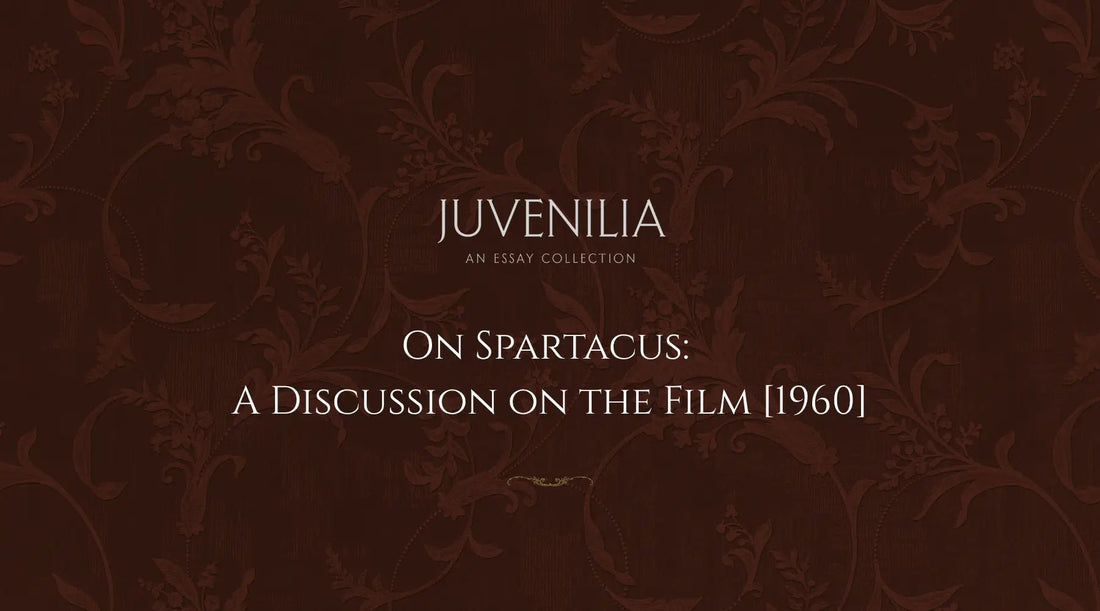
On Spartacus: A Discussion on the Film [1960]
How does the film characterize Spartacus and his army of slaves?
The film characterizes Spartacus and his slaves as "less than" human beings, at least from the perspective of the Romans. The film does a good job of portraying the dualistic nature of opposing forces through perspective; the slave point of view is from the standpoint of standing up against oppression and taking back personal autonomy, while the Roman perspective perceives slaves as little more than cattle.
Idealistic at times, the revolt is depicted as a fight for freeing all slaves, when in all likelihood, the slaves were fighting for their personal freedom as a primary concern, not as a mission of freeing every Roman slave. When your life is in danger, one is typically more preoccupied with survival than humanitarian efforts, though it is obvious there would be an advantage to freeing slaves as Spartacus and his crew went along (i.e. more numbers on their side, destabilizing the workforce of the Romans and stealing of resources.) Spartacus is represented as a hero, (as a Mel Gibson of the old world if you will) and though it has a certain amount of charm, it's not necessarily accurate when compared with sources. It was certainly romanticized.
How does the film portray the conflict between rule [Romans] and revolt [slaves]? Between traditional order and personal freedom?
I answered this in part within the first question, but I can further elaborate. Simply put, the Romans required slaves to function at all levels of society. Even if there were Romans that disagreed with slavery in theory, it served as a major logistical problem to allow freedom because free labour is what enabled the grandeur all citizens enjoyed (which makes Varinia's ending questionable at best). If even one slave was able to escape, it could cause all of them to attempt, which undermines Roman authority. It is a balancing act that the Romans had to keep under wraps at all times. Order was of the utmost importance, so the wishes of a slave—or personal freedom—was null in their eyes. We see how the slaves are treated in three major ways: when they're mining (bodies for manual labour), in gladiator school (bodies for entertainment purposes), and household labour (bodies for everyday logistical things and pleasure). They are so deeply engrained in the lifestyle that allowing anything to topple, even an insignificant pebble from the top could destabilize everything.
